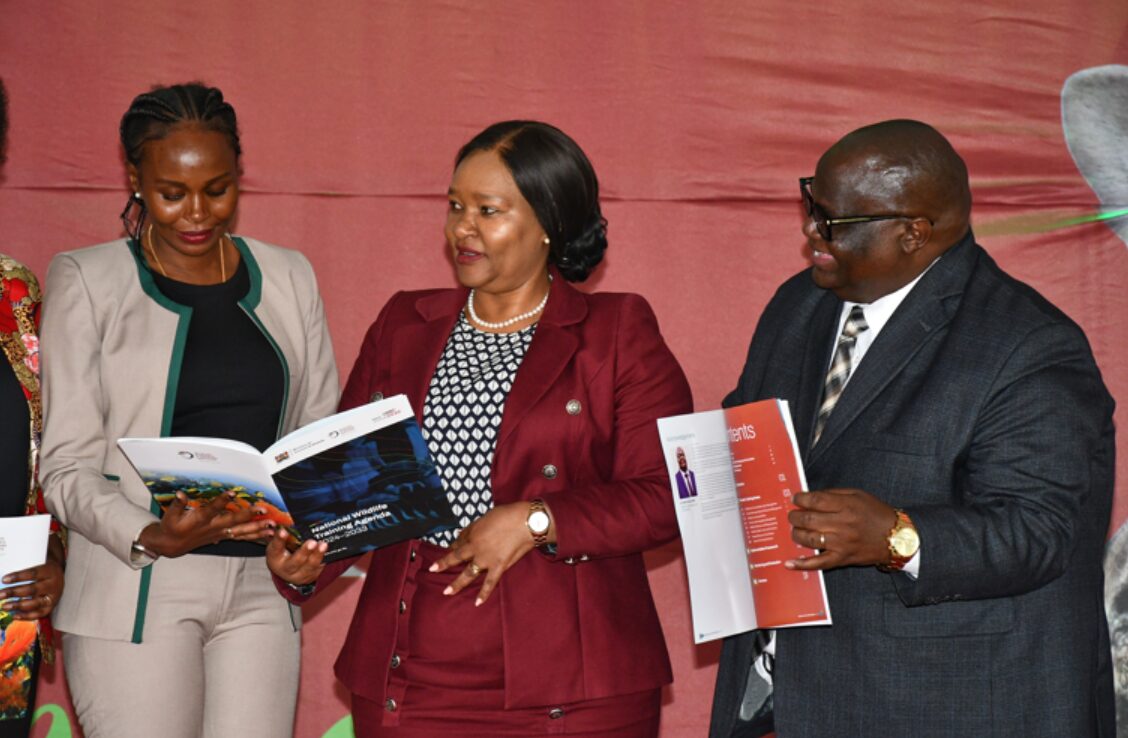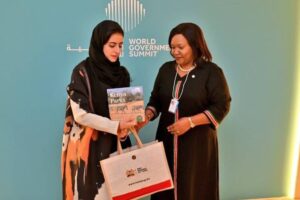The Ministry of Tourism and Wildlife is intensifying efforts to enhance wildlife research and training to ensure that policies in the sector are informed by scientific research, leading to improved management. Tourism and Wildlife Cabinet Secretary, Rebecca Wanjiku Miano, highlighted that the Revised Wildlife Strategic Plan 2023-2027 marks a significant achievement in addressing key challenges within the wildlife sector.

“With thorough research, we will be able to anticipate changes, especially in projecting the future of rare wildlife species, understanding why they are becoming endangered, and finding solutions,” Miano said. She made these remarks on Wednesday at the Wildlife Research and Training Institute (WRTI) in Naivasha during the launch of the institute’s updated Strategic Plan (2023-2027). The plan aims to incorporate scientific research for sustainable wildlife conservation while tackling challenges such as droughts, flooding, and declining wildlife populations.
Miano emphasized that this launch follows the recent unveiling of the Kenya Wildlife Service (KWS) strategic plan, signaling the Ministry’s readiness to implement both. She added that capacity building in the wildlife sector would be a priority moving forward to support conservation efforts.
“To support this initiative, we have introduced a new curriculum and training program for the period 2024 to 2033, aimed at enriching the strategic plan with more relevant information, ideas, and goals,” Miano added.
One of the core objectives of the revised Strategic Plan is to provide leadership in wildlife research and generate scientific data to guide decision-making. Miano explained that strategies have been set to bridge the gap between science, management, and policy. These include regular synthesis of research findings and drafting policy briefs to ensure that decisions on wildlife conservation are evidence-based, in line with the National Wildlife Strategy 2030.
“This plan seeks to realign wildlife research to address the country’s needs,” Miano stated, praising the strategies for tackling emerging issues, such as the institute’s focus on partnerships to enhance research in climate change and carbon financing opportunities.
The Strategic Plan also includes developing forensic tools to support the prosecution of wildlife crimes, assessing the status of invasive species, and initiating habitat restoration projects. Additionally, it will focus on researching socio-economic factors related to wildlife management, exploring nature-based solutions for human-wildlife coexistence, and identifying drivers behind bushmeat consumption.
Miano also emphasized that the strategy will help Kenya honor its international commitments to wildlife conservation and reinforce the country’s leadership in global conservation efforts. She expressed the Ministry’s full support for WRTI in implementing the plan and called on development partners to help address funding gaps.
The Principal Secretary for Wildlife, Silvia Museiya Kihoro, voiced concerns over the decline of small wildlife species, such as the Roan antelope in Ruma National Park, and highlighted the need for urgent action to reverse these losses. She also mentioned the increasing problem of bushmeat hunting in national wildlife corridors and expressed confidence that the strategic plan would address this issue.
WRTI CEO and Director Dr. Patrick Omondi revealed that implementing the plan would require KSh 13 billion over the next four years. The institute has already identified key priority projects and is working toward completing the ongoing National Wildlife Census, which is set to conclude in June 2025. So far, KSh 130 million has been allocated for the census, which is currently progressing through Samburu, Laikipia, Marsabit, and Northern Kenya, before concluding in Tsavo. Omondi expressed optimism that the remaining KSh 40 million needed to finish the project would be secured.
“The strategic plan we are launching today is a revision of the first plan (2022-2027),” Omondi said. He added that the updated plan would provide wildlife researchers and policymakers access to data through a harmonized research portal.
The revised Strategic Plan is built on three guiding principles: enhancing the quality of scientific data and skills, strengthening the institute’s identity, and improving stakeholder engagement. It will also focus on resolving human-wildlife conflicts, advancing wildlife farming and economy, and leveraging technology and climate research to position WRTI as a globally competitive wildlife research center.



















